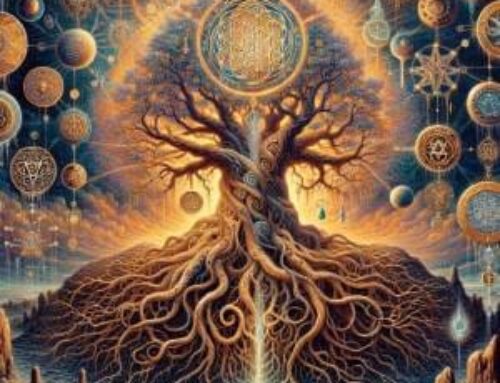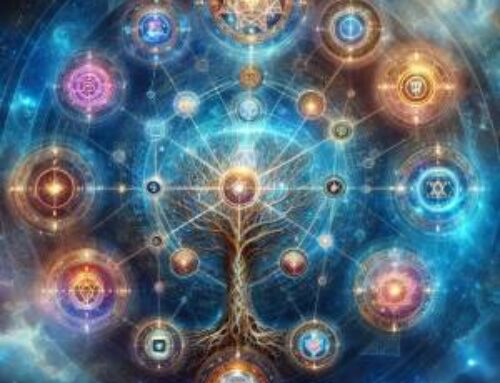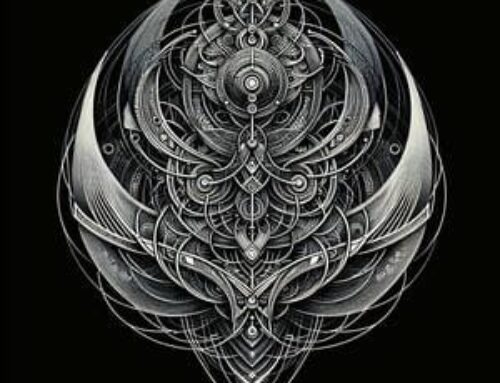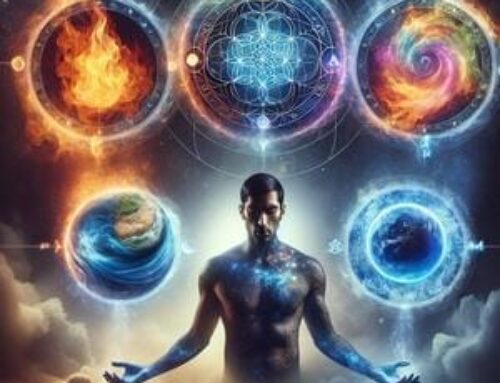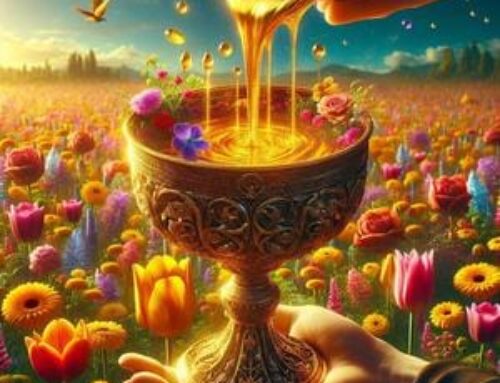Contents
- 1 Introduction to Kabbalah and Illuminati
- 2 Foundations and Philosophical Roots of “Kabbalah and Illuminati”
- 3 Secret Societies and Their Rituals
- 4 Historical Influence and Spread
- 5 Contemporary Relevance of “Kabbalah and Illuminati”
- 6 Conclusion
- 7 FAQ – Kabbalah and Illuminati
- 7.1 1. What are the core differences between Kabbalah and Illuminati philosophies?
- 7.2 2. How did Kabbalah influence modern secret societies?
- 7.3 3. Did the Illuminati successfully infiltrate other secret societies?
- 7.4 4. What is the legacy of the Illuminati today?
- 7.5 5. How can someone learn more about Kabbalah and Illuminati?
- 8 References:
Introduction to Kabbalah and Illuminati
In the veiled hallways of history, where mysticism merges with the advance of secret orders, the terms Kabbalah and Illuminati carry a distinct echo. Many conspiracy theories explore the connections between Kabbalah and Illuminati, often suggesting hidden knowledge and secret practices. These two streams of esoteric wisdom, often wrapped in secrecy and rich with intrigue, have deeply influenced both seekers and scholars. Beyond their mysterious charm, they wield a significant impact on the networks of secret societies that have shaped political and cultural terrains across continents.
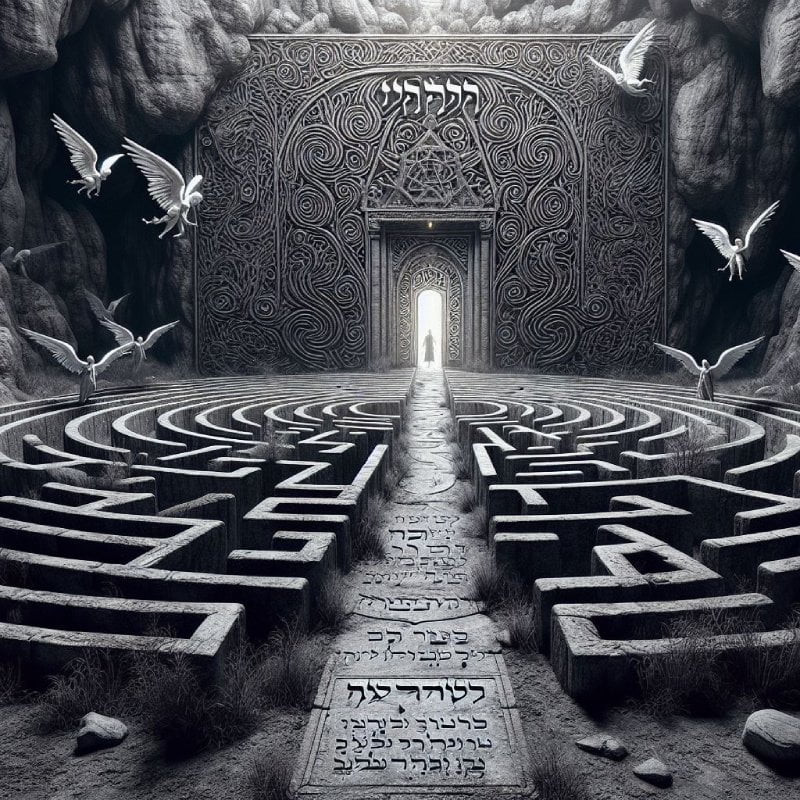
Kabbalah, a traditional mystical philosophy, probes deeply into the spiritual universe, offering insights that resonate far beyond its origins, into the vast expanse of Western esoteric thought. The Illuminati, frequently portrayed as a covert assembly with expansive ambitions, similarly engages with deep philosophical and spiritual currents that challenge established norms. Together, these traditions have not only intertwined with each other but have also infused their symbols and teachings into the rites and doctrines of secretive circles such as the Freemasons and the Rosicrucians, weaving their influence into a broader historical narrative.
This article aims to uncover the subtle links between Kabbalah and Illuminati and to highlight their enduring impact on contemporary secret societies and modern cultural movements. As we uncover the layers of myth and reality, we invite the reader to delve into a journey of understanding that reveals how these ancient wisdoms continue to shape the modern esoteric landscape.
Foundations and Philosophical Roots of “Kabbalah and Illuminati”
Kabbalah: Unveiling Deep Esoteric Knowledge
Kabbalah represents a profound esoteric system that delves into the mystical aspects of life and the cosmos. Through its elaborate symbolic framework, numerological studies., and initiations, it seeks to reveal the underlying spiritual architecture of the universe. Kabbalah has long captivated scholars and seekers alike with its rich insights into the connections between the divine and the mundane, encouraging a deeper comprehension of universal truths.
Illuminati: Intellectual Ambitions vs. Esoteric Depth
Initially inspired by Enlightenment ideals, the Illuminati aimed to foster reason and freedom within society’s rigid structures. The Illuminati confused enlightenment with intellectual knowledge. However, their approach was more intellectual and lacked genuine insight into real Hermetic practices, focusing instead on societal and political influence without deep esoteric understanding. This lack of spiritual depth and their secretive operations led to widespread skepticism and controversy, with critics arguing that their methods were more manipulative than enlightening.
Impact on Secret Societies
While Kabbalah has enriched philosophical discourse with its profound esoteric wisdom, the Illuminati have left a more contentious legacy. Both have influenced secret societies like the Freemasons and the Rosicrucians, but their contributions have been perceived differently. Kabbalah’s teachings are revered for their spiritual depth, whereas the Illuminati’s influence is viewed with caution, often seen as blurring the lines between intellectual discourse and covert manipulation.
Secret Societies and Their Rituals
Kabbalistic Influence: Symbols and Spiritual Depth
Kabbalah has deeply influenced the rituals of secret societies like the Freemasons and the Rosicrucians, enriching their ceremonies with profound spiritual symbolism. Specific elements such as the Tree of Life are used extensively to navigate the intricate pathways of spiritual ascension and interconnectivity. These symbols are not merely decorative; they embody layers of esoteric wisdom, enabling practitioners to achieve deeper insights and spiritual transformation through ritualistic practices. The blending of Kabbalah and Illuminati symbols in popular culture often leads to misconceptions about both traditions.
The Rise and Fall of the Illuminati: Intellectual Ambitions and Closure
The Illuminati, founded in 1776, aimed to propagate Enlightenment values through society using the secretive and hierarchical structures typical of older secret societies. However, their approach was markedly intellectual, focusing on societal reform through reason and science, without the deeper spiritual insights that Kabbalistic practices offered. This limited perspective often led to a superficial understanding of the universe’s complexities. The order was officially disbanded in 1785, as their activities were banned by the Bavarian government, which feared their growing political influence. Their end marked a significant close to their overt activities, although theories about their continued influence persist.
Kabbalah and Illuminati: Intellectual vs. Spiritual Rituals
Understanding the differences between Kabbalah and Illuminati can clarify many myths surrounding spiritual and secret societies. The rituals of the Illuminati were infused with intellectual debates and philosophical discourses, reflecting their members’ academic backgrounds. They utilized symbols and rituals more as means to foster social bonds and political influence rather than for any spiritual enlightenment. This contrasts starkly with Kabbalistic practices within other secret societies, where rituals serve as conduits to higher wisdom and personal transformation. The Illuminati’s attempt to answer the vast questions of the universe with their limited intellect left them with a legacy more notorious for conspiracy than for contributing to true esoteric knowledge.
Historical Influence and Spread
Kabbalah’s Enduring Spiritual Legacy
Kabbalah has profoundly influenced a broad spectrum of mystical traditions and secret societies, extending its reach far beyond its origins. Its teachings, rich in esoteric symbolism and deep spiritual insights, have woven into the fabric of Western mysticism, particularly influencing societies like the Freemasons and the Rosicrucians. This spiritual tradition has helped preserve Kabbalah’s relevance, fostering an ongoing exploration of divine mysteries.
The Illuminati’s Brief Yet Pervasive Impact
Though officially active for just under a decade, the Illuminati’s influence extended well beyond their years of operation. They infiltrated Freemasonic lodges, subtly taking over leadership roles and shifting the lodges’ focus from spiritual enlightenment to their agenda of intellectual reform and political influence. This maneuver redirected Masonry from its original spiritual purpose towards a path riddled with propaganda, materialism, and political machinations, significantly diluting its esoteric roots.
Illuminati and Rosicrucianism: Ideological Clash
Contrasting sharply with their successful infiltration of Freemasonry, the Illuminati found themselves fundamentally at odds with Rosicrucianism, a path steeped in deep spiritual practice and the development of spiritual powers. The Rosicrucians’ focus on inner spiritual growth, esoteric enlightenment and Kabbalah, was in direct conflict with the Illuminati’s material and politically driven ambitions. This ideological divergence prevented the Illuminati from penetrating Rosicrucian circles, as their goals of political dominance and material gain found no resonance with the Rosicrucians’ spiritual objectives.
Contemporary Relevance of “Kabbalah and Illuminati”
Kabbalah in Modern Esoteric Practices
Kabbalah continues to hold a significant place in contemporary spiritual and esoteric practices. Its teachings, rich with ancient wisdom and mystical insights, are integrated into various modern movements, offering pathways to personal and spiritual growth. Today, Kabbalah attracts individuals from diverse backgrounds, drawn by its promise of deeper understanding and spiritual connection.
The Illuminati’s Legacy in Popular Culture
The legacy of the Illuminati is markedly different, primarily permeating popular culture as a subject of conspiracy theories and speculation. Their historical attempts to influence societal structures through intellect and politics have transformed into a modern mythos that suggests hidden global dominance. This portrayal often overshadows their actual philosophical contributions, focusing instead on their supposed ongoing influence in global politics, economics, and media. This fascination reflects a societal intrigue with power and secrecy, fueling endless debates and fictional representations in books, movies, and television.
Evaluating Their Influence on Secret Societies
Both Kabbalah and the Illuminati have left indelible marks on the fabric of secret societies. While Kabbalah has enriched these groups with spiritual depth and esoteric knowledge, the Illuminati’s influence is seen in the political and materialistic shifts observed in some of these societies. Today, the study of these movements offers valuable insights into how spiritual and intellectual pursuits can diverge, and the implications of these paths for personal and collective development.
Conclusion
In tracing the intricate threads of Kabbalah and Illuminati through the annals of secret societies, we uncover a rich tapestry of influence that has shaped not only esoteric traditions but also the broader contours of cultural and intellectual history. Kabbalah, with its profound spiritual insights, continues to inspire those seeking deeper understanding of the universe and their place within it. Its teachings offer a window into the soul, providing tools for personal transformation and enlightenment.
Conversely, the legacy of the Illuminati, while shrouded in mystery and often clouded by modern mythos, challenges us to reflect on the power of ideas and the extents to which they can shape societies. The Illuminati’s philosophical and intellectual endeavors, though short-lived, sparked movements that questioned traditional hierarchies and sought to reimagine societal structures.
Start Your Journey Into the Hidden Depths of Spirituality
Are you intrigued by the mysteries of Kabbalah and secret societies? Do you wish to delve deeper into the esoteric teachings that have influenced secret societies and shaped spiritual and intellectual discourses? Join us at the Hermetic Academy, where we preserve the most powerful initiatory path.
FAQ – Kabbalah and Illuminati
1. What are the core differences between Kabbalah and Illuminati philosophies?
A: Kabbalah and Illuminati represent two distinct streams of esoteric thought. Kabbalah delves deeply into spiritual mysteries, using symbolic frameworks to explore the divine and universal connections. In contrast, the Illuminati focused societal reform, often lacking the deeper spiritual insights found in Kabbalah. They confused intellectual knowledge with enlightenment. Their methods emphasized political influence and rationalism, which led them away from the mystical depth characteristic of Kabbalistic practices.
2. How did Kabbalah influence modern secret societies?
A: Kabbalah has significantly influenced modern secret societies by providing a rich spiritual framework that enhances ritualistic practices and deepens philosophical understandings. Its teachings have been integrated into the rituals and symbols of groups like the Freemasons and the Rosicrucians, enriching their esoteric traditions.
3. Did the Illuminati successfully infiltrate other secret societies?
A: The Illuminati had a notable impact on Freemasonry, where they infused their Enlightenment ideals. However, their attempts to influence the Rosicrucians were unsuccessful due to fundamental ideological differences, particularly the Rosicrucians’ deep commitment to spiritual and esoteric goals, which conflicted with the more material and political ambitions of the Illuminati.
4. What is the legacy of the Illuminati today?
A: The legacy of the Illuminati today is more prominent in popular culture than in actual secret societal influence. They are often depicted in media as a shadowy group wielding substantial global power. This portrayal, while exaggerated, reflects the enduring public fascination with the idea of hidden forces shaping world events.
5. How can someone learn more about Kabbalah and Illuminati?
A: Those interested in learning more about Kabbalah and secret societies can and join societies that study these traditions. For a structured approach, joining an institution like the Hermetic Academy, which provides and authentic initiatory path and courses, can offer guided and in-depth understanding and enlightenment.
References:
(1) Eliphas, L. (1854). Dogme et Rituel de la Haute Magie. Paris.
(2) Eliphas, L. (1854). Dogme et Rituel de la Haute Magie. Paris.
(3) Eliphas, L. (1854). Dogme et Rituel de la Haute Magie. Paris.
(4) Mathers, S. L. M. (1887). The Kabbalah Unveiled. London.
(5) Rubenstein, E. (2023). Magic: The Legacy of the Rosicrucians. Hermetic World, Paphos.
(6) Rubenstein, E. (2020). The Tree of Life: The Kabbalah of Immortality. Hermetic World, Paphos.

